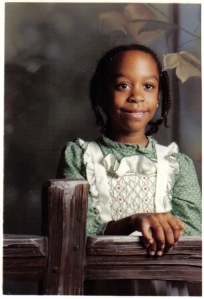
It was my dad who taught me to pray. When I was little, Dad and I would kneel beside my bed and pray together, Now I lay me down to sleep. I pray the Lord my soul to keep. God bless, Mommie, Daddy, Phillip, (the twins, when they came along), Grandma, Auntie, Benji (my pet rabbit), Spot (my dog), and a host of other animals and things on my child’s mind. I remember feeling like such a big girl when Dad taught me the Lord’s Prayer.
When I became a teenager, prayer became something I did at church or with my family. Occasionally, I would pray on my own—when I needed something from God. I did not find much meaning in prayer, although my parents modeled a lifestyle of prayer for me.
As a young adult, prayer confused me: How to pray? Does God really hear me? Why should I pray if God knows what is on my mind anyway? Why doesn’t God answer my prayers? At times, prayer made me angry. Why pray, when God doesn’t listen—or even worse, doesn’t care?
In my early 30’s, I went through some bad relationships and some awful break-ups. I was angry. Was I doomed to have a broken-heart? Why didn’t God do something? Didn’t he care? I was annoyed with well-meaning people who tried to make me feel better with comments, such as: God knows what is best for you. Don’t worry, God has the perfect man for you at the perfect time. Maybe God wants you to focus on him right now. Make God the center of your life.
Those comments seem to discount my pain. I was hurting. Where was God in the midst of my pain? Then over the years, three people said some simple things that caught my attention:
Robin, my friend and former boss, assured me that God feels my pain and cries with me. God, my Creator and God, feels my pain and cries with me too? He is present in my pain? Wow. Now this is something to which I can relate, something onto which I can latch.
Fr. Leigh, my rector, said in one of his sermons that God was not despondent to our pain. Seriously, I thought—is that true? God truly cares about my pain? He emphasizes with me?
My friend Agatha once said in a passing conversation (I think with someone else, not me) that she prays to God and expects him to respond—why not? It was like I heard her comment in my mind, saying, Duh. If I pray, why wouldn’t I expect God to answer? She wasn’t saying that God would answer our prayers always with an affirmative but that God would answer our prayers, that we would always get a response. (My mom used to tell me this, but I never listened her. It took a person from outside the family to get this truth across to me.)
Now I am on the other side of young adulthood. Prayer is still a mystery to me. I still don’t get it or fully understand it, but it has become an integral part of who I am. I thank my dad for teaching me how to pray, my parents for modeling prayer for me, and my friends and priest for revealing some important elements of prayer to me.









